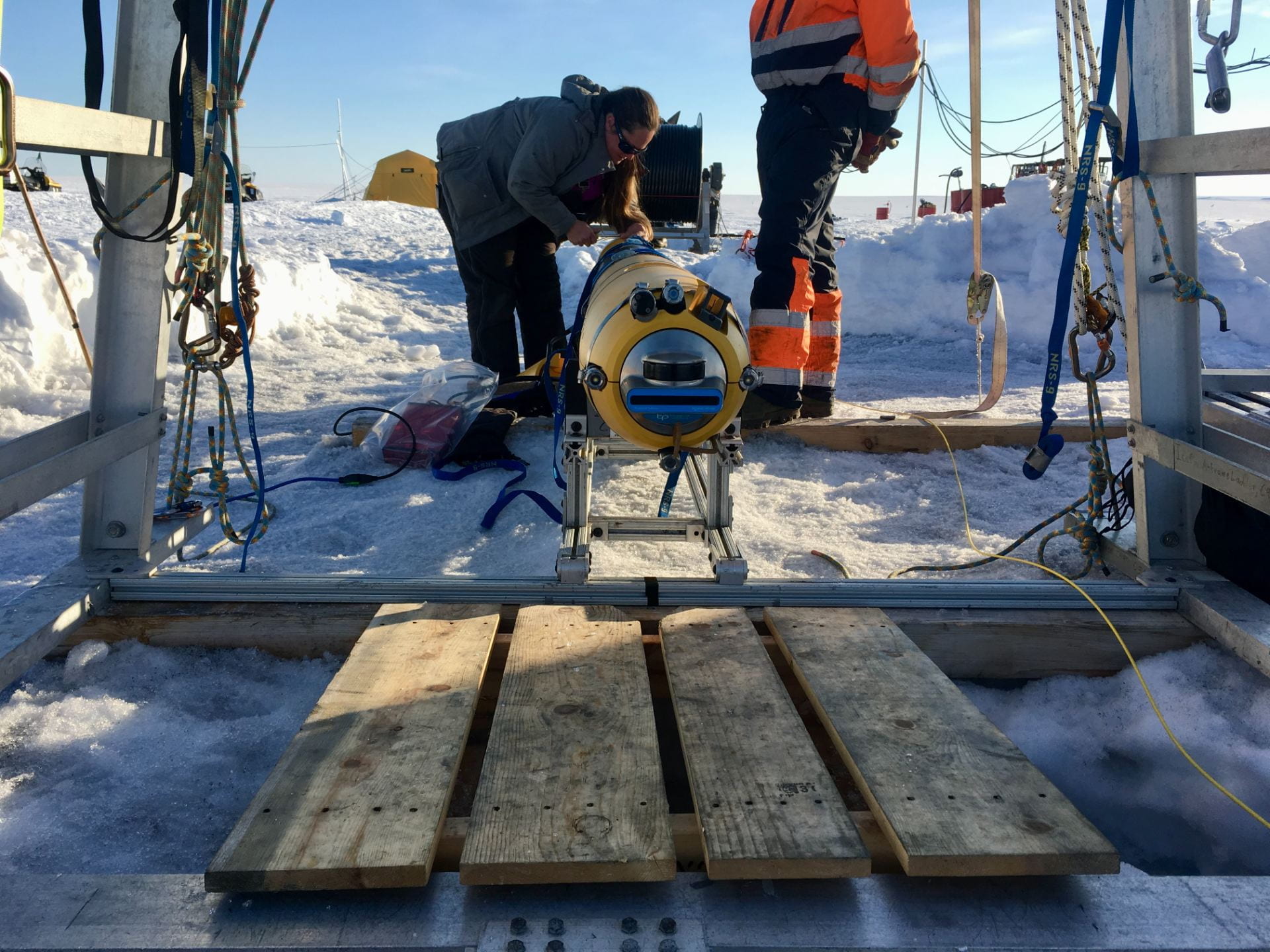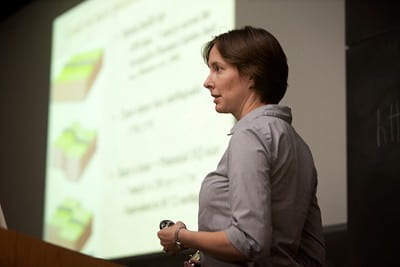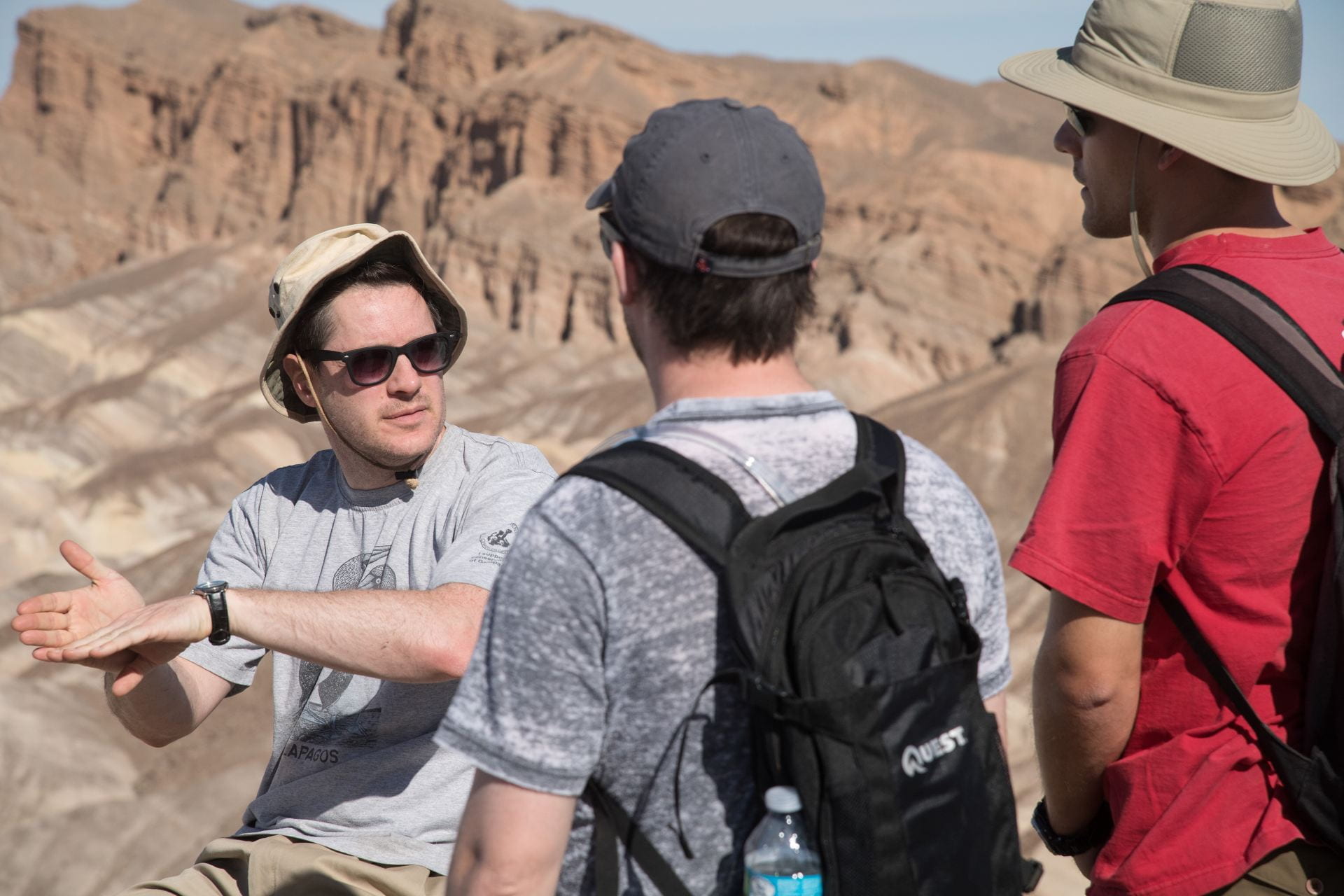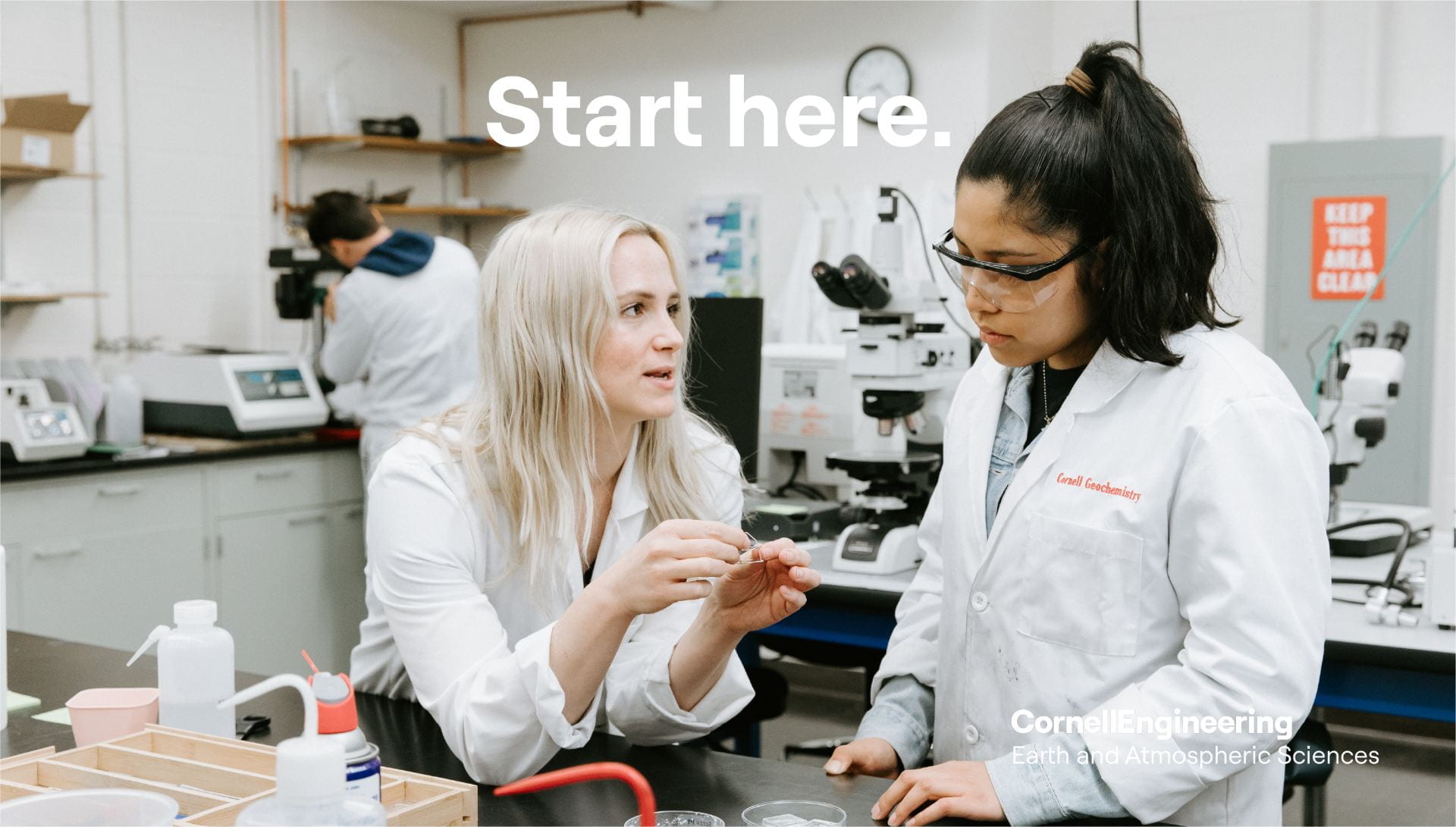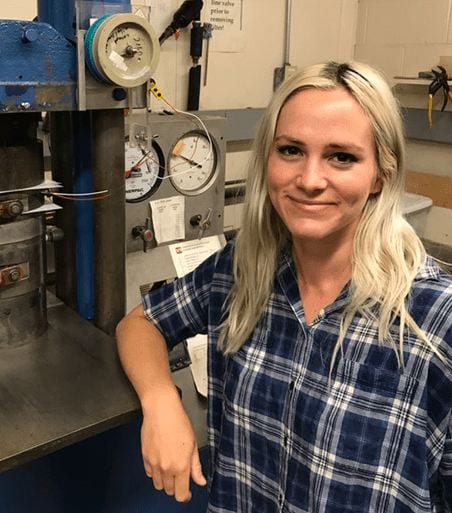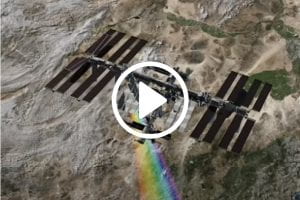Want to Save the Planet?
We have a way.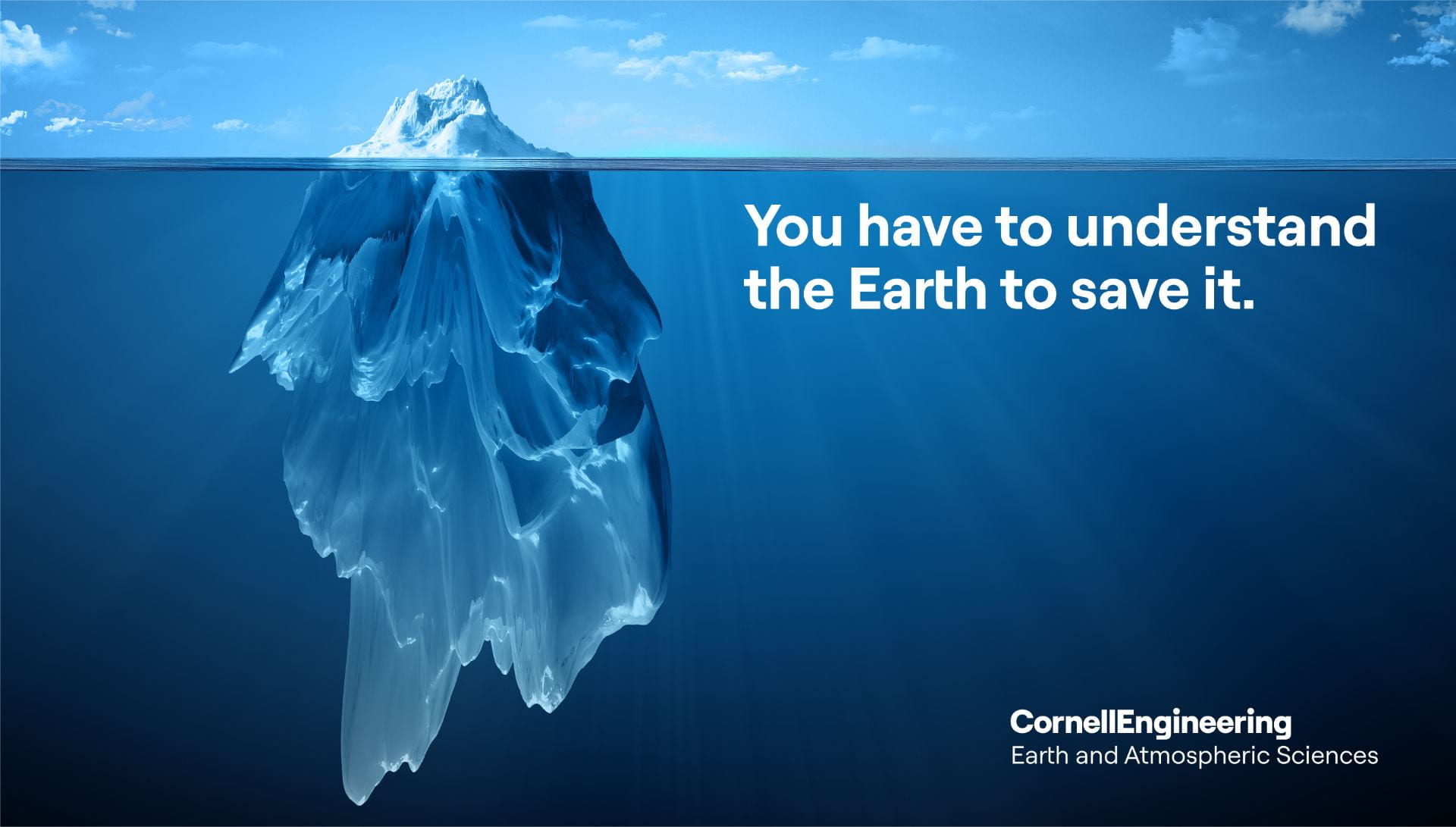
Studying the Earth is the ultimate systems engineering.
With a degree in Earth and Atmospheric Sciences (EAS) from Cornell Engineering, you will be uniquely situated to address the existential climate problems we face as a planet. In EAS, we study the causes, impacts and solutions for climate change. The field of EAS addresses important issues about climate change causes and impacts and how to get the resources to transition to renewable energy. Faculty also work to understand how hazards like earthquakes, volcanoes, hurricanes and droughts occur and what their impact is.
“We live on a beautiful and dynamic planet that affects every aspect of our lives—we should understand it, and how our actions affect the planet as well. The Earth sets up all the challenges we need to solve: how to build new buildings, where to put infrastructure, what energy sources we have, and how the future of our planet will unfold. We need science & engineering solutions that make our lives better, and that starts with understanding how the planet works. The problem solving you learn as a scientist or engineer gives you the potential to work in almost any field—the ability to ask and answer questions and design new ways to get information is at the heart of our work in EAS.”
– Britney Schmidt, Associate Professor and one of TIME’s 100 Most Influential People in 2023
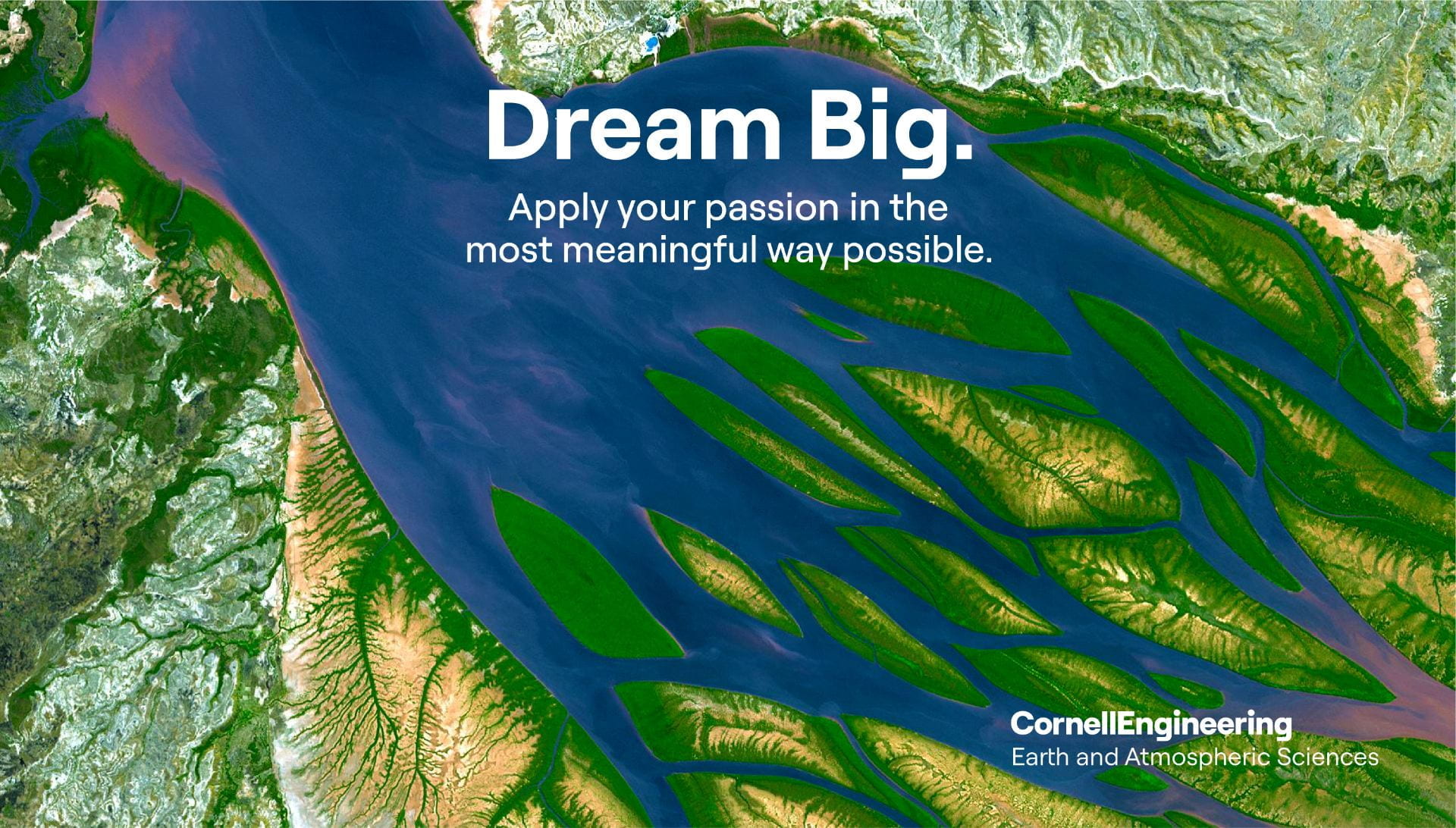
Dream big.
Want to affect meaningful change in the world? Use engineering and computer science in combination with deep knowledge of Earth processes to save lives. When studying EAS, you collect and analyze data, build models, solve problems, and help humanity on a large scale.
“If you want to make a difference and tackle existential threats to humanity like climate change, EAS is the perfect department to join. The research I did during my time in EAS provided me with the skills I needed to write software and work with satellite imagery. Cornell Engineering provides you with the technical skills needed to actually make an impact on these incredibly challenging problems.”
– Adam Stewart ’14
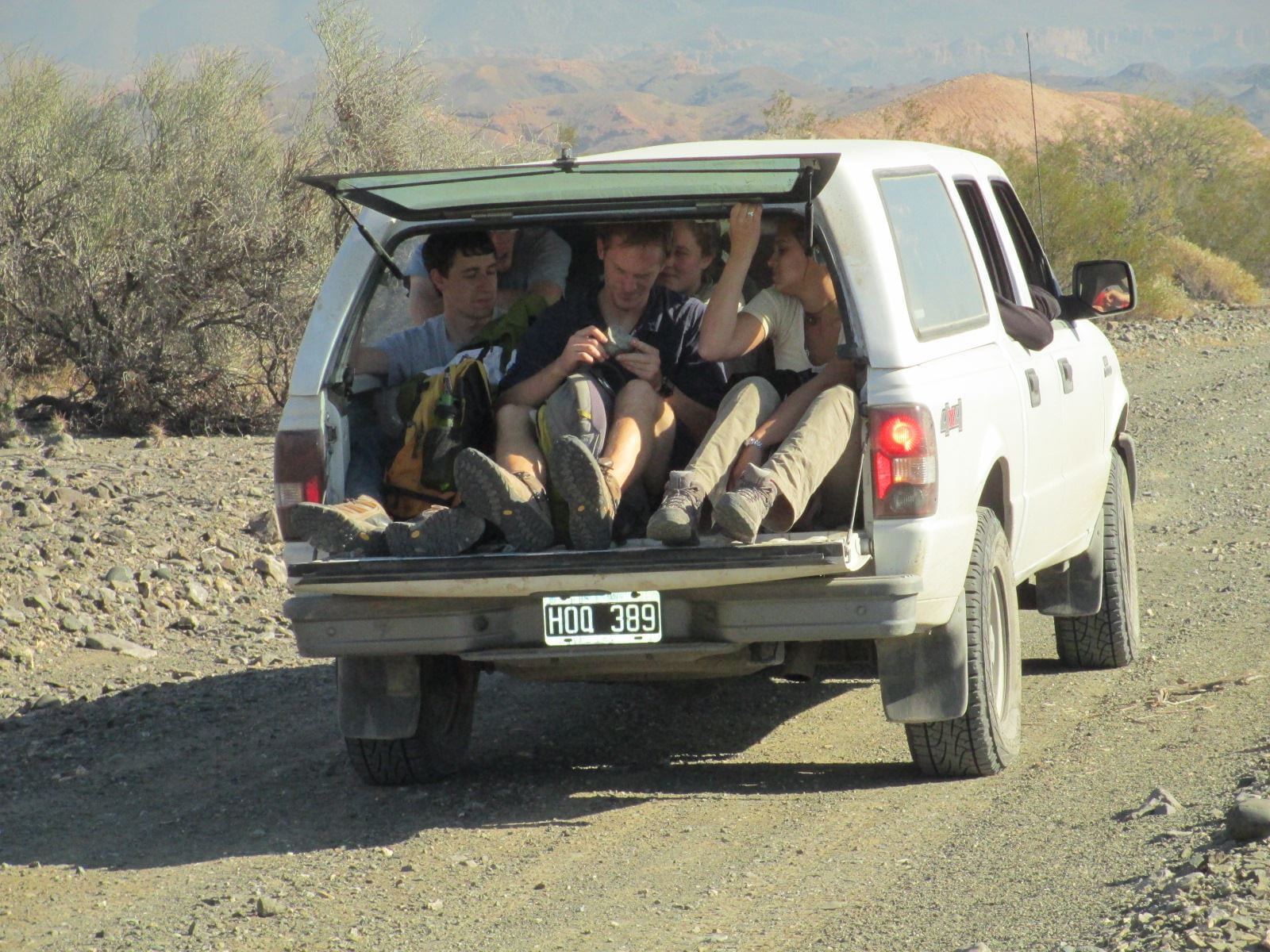
Adam Stewart ’14 (far left) rides with fellow researchers to a field site in the deserts of Argentina near San Juan as part of EAS undergraduate coursework. Stewart currently uses AI and satellite images to tackle problems in climate change and ecology.
“When I was in high school, I knew that I loved the ocean, and science transfixed me. I was constantly in wonder, just dumbstruck, by what we’ve discovered with science, and how much we still don’t know. That was it. You don’t have to know what you want to do with your life today. But if you know there’s something, as big as the ocean or as small as a crystal, that sparks your wonder and curiosity, let it guide you. Explore more. Along the way, you will probably swerve off the path you expected to follow. I didn’t know what job opportunities were out there, or the numerous niche fields of study I would stumble into, but it’s been a lot more fun than the life I thought I had planned out. Letting your passions speak for themselves will be the fuel you need to make the biggest impact on the world.”
– Marg Daly ’17
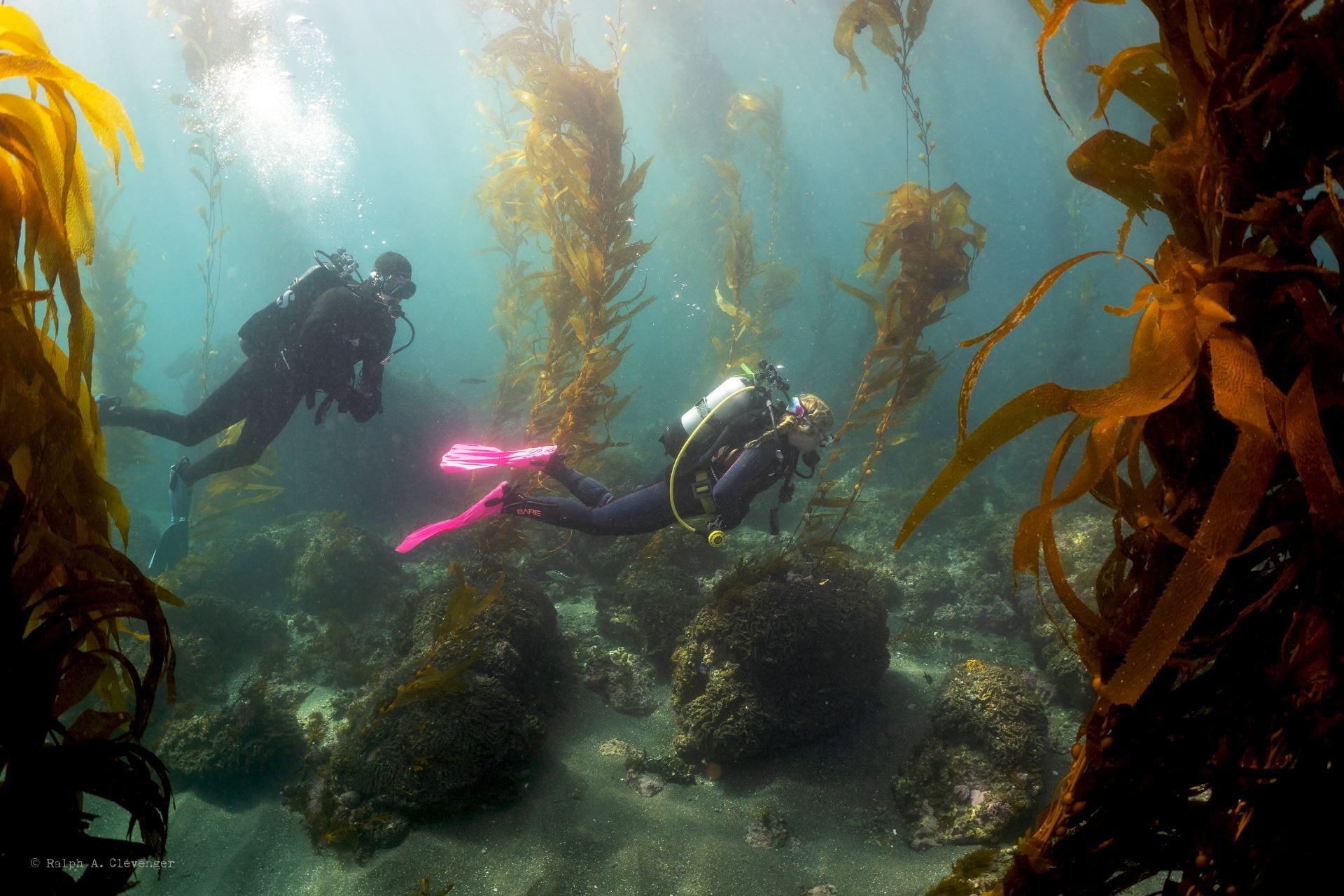
Marg Daly ’17 dives in the Channel Islands on a research trip. In her post-doctoral work, she is researching how currents move in kelp forests, deterrents to illegal fishing, and detecting sea otters from drone imagery with machine learning.

Help wanted.
With increasing frequency and intensity, we are affected by the changing climate. The world needs the minds and passion of aspiring engineers to tackle the complexities with innovation, deep knowledge, and interdisciplinary agility. As an engineering scholar in the EAS program at Cornell Engineering, you will gain the intellectual nimbleness as well as the technical expertise to address the big societal problems of the 21st century—procuring resources for the green transition, predicting hazards like earthquakes and volcanic eruptions, and mitigating climate change.
“Our environment is changing rapidly—people are increasingly subjected to hazards from sea level rise, droughts and increased storm intensity. In the Earth and Atmospheric Sciences, we seek to understand the context of such changes by studying the geologic record, climate histories, and computational simulations of how the Earth system should work. We often say “the past is key to the present”, which means that we can better understand what our environment is sensitive to, and what will likely have the largest impact in driving future changes, if we see how the Earth responded to various events in the past. In this field, “past” can mean anything from 10+ billion years to a few months—members of our department quickly learn the ability to think between timescales and communicate with others who are doing vastly different types of research.”
– Rowena Lohman, Professor
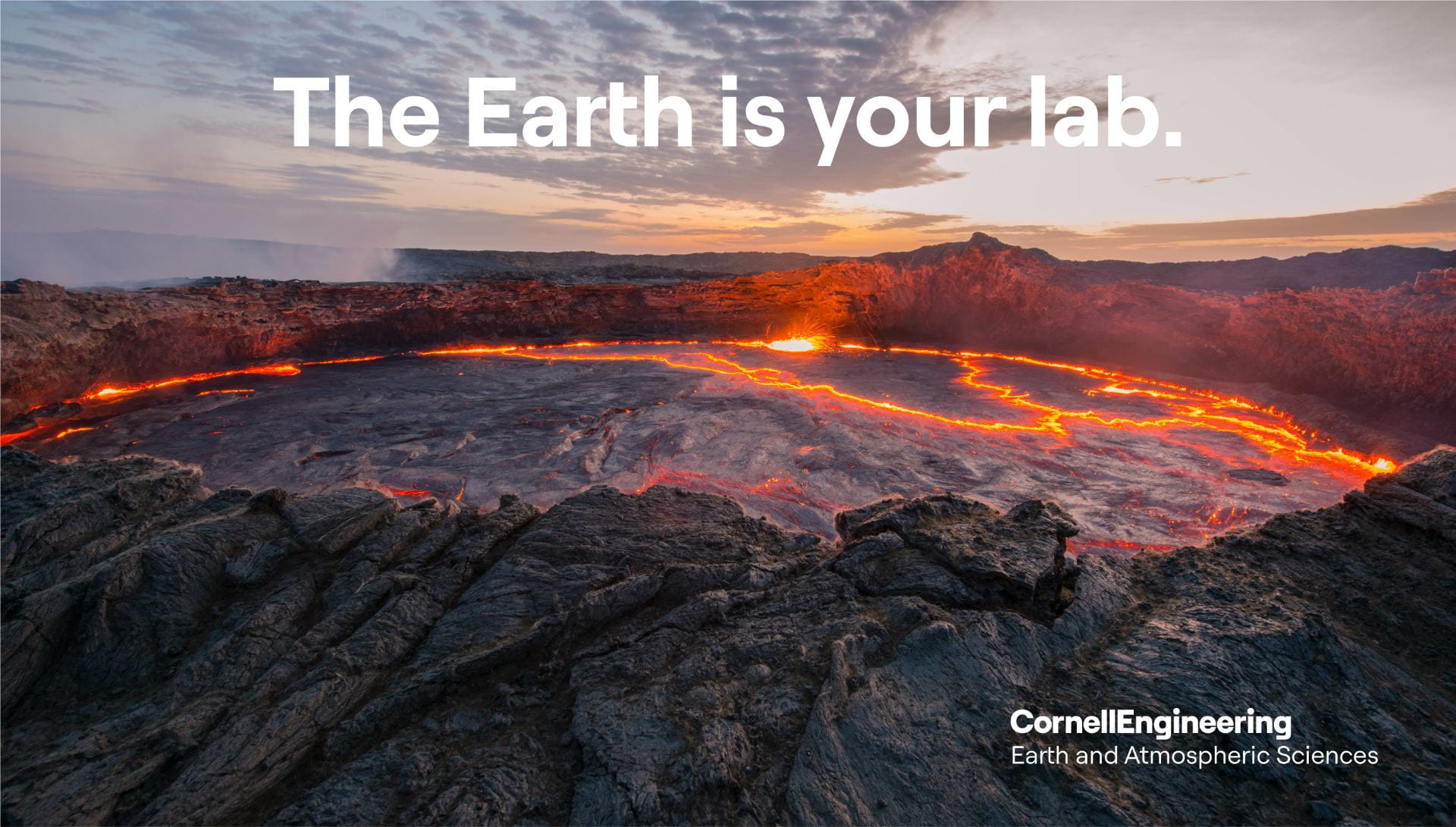
The Earth is your lab.
Volcanos. Mountains. Oceans. Research in EAS is performed all over the world. Thinking of computer science? With a Cornell Engineering degree in EAS, you will gain substantial computing expertise in addition to learning about Earth processes. Take your laptop on a boat or atop a glacier as you apply your technical knowledge to understanding our planet. Adventure travel not your thing? Fear not—many Earth scientists primarily work in a traditional lab setting.
Cornell Engineering is located on Cornell’s Ithaca campus. The gorgeous, dramatic landscape of Central New York is a living laboratory to study the environment.
I study volcanoes, how they form and erupt, and what makes them explosive and dangerous but also interesting and useful (energy and resources). I am also working on methods to more efficiently harvest critical elements from the Earth needed for the clean energy transition in a sustainable way.
Esteban Gazel, Charles N. Mellowes Professor in Engineering
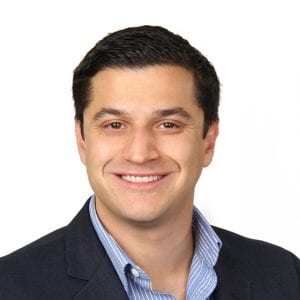
In the past ten years, Professor Gazel has traveled to many locations around the world for his research and work. These include: Hawaii (Mauna Loa, Mauna Kea, Haleakala), Gálapagos (San Cristobal and Isabela), Chile, Italy (Stromboli, Vulcano, Etna, Vesuvius), Central America (Arenal, Poás, Turrialba, Masaya, San Cristobal, Concepción, Cerro Negro), and the Canary Islands (Lanzarote, Teide, El Hierro, and the 2021 eruption in La Palma).
“My favorite class to teach is Planetary Surface Processes that I co-teach with Professor Alex Hayes in the Astronomy Department. Students learn about sensors that we use to learn about planets, moons, asteroids, and comets. We study the processes that shape these worlds. We have an optional field trip over spring break to Death Valley and the Mojave Desert in California where students use satellite data to predict what they will see on the surface and then we go and see if their predictions were right.”
– Matt Pritchard, Professor
Your future as a planet hero starts at Cornell Engineering.
Earth and Atmospheric Studies at Cornell Engineering is a preeminent Earth studies and engineering program. We have small classes with a higher-than-average ratio of faculty to students. If you major in Earth and Atmospheric Studies, you might take one of these classes for your major: How to Build a Habitable Planet, Earthquake!, Physical Oceanography, Paleobiology, Atmospheric Air Pollution, Volcanology, Microclimatology and Interacting with Global Climate Policy.
You will learn from the absolute best—preeminent experts in their fields. Geophysicist Matthew Pritchard was recently featured on CBS’s 60 Minutes to talk about his work monitoring volcanoes from satellites in space. Just named one of Time’s 100 Most Influential People, astrobiologist and polar oceanographer Britney Schmidt studies how habitable ocean worlds like Jupiter’s moon Europa may be. Oceanographer Bruce Monger teaches Physical Oceanography, one of the most popular courses at any college in the U.S.
At Cornell Engineering, become a scholar of Earth systems with a foundation in one of the best engineering educations in the world.
Megan Holycross studies the chemistry of rocks using experiments to recreate environments that cannot be directly sampled deep under Earth’s surface. Her experiments provide a “Rosetta Stone” to decipher the secrets of the rock record.
“My favorite part of my work is getting to collaborate with an amazing team of students and colleagues. The students I work with and teach are hard working, creative, and clever. We apply quantitative engineering, science and math skills to solve complex, open-ended and societally-relevant Earth science problems. We are driven by our quest to find out more about our dynamic home planet.”
– Megan Holycross, Assistant Professor

